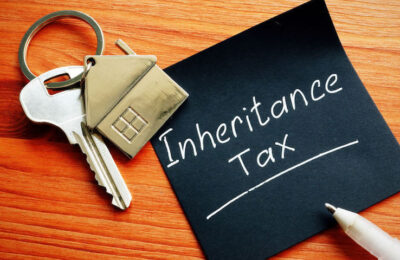There’s no denying it has been an unusual time of late, even for the taxman. When the coronavirus pandemic struck back in spring 2020, HMRC suspended most tax investigations. Instead, many investigations staff were deployed to help taxpayers with emergency support schemes like CJRS (the furlough scheme) and SEISS (for the self-employed). However, this is all beginning to change – new figures show that HMRC penalties are on the rise again.
It’s also very likely that that figure has increased significantly since then. To take one example, in November 2020 HMRC began compliance checks into the Eat Out to Help Out scheme. Checks included making sure businesses hadn’t overclaimed, that claims were consistent and that manual claims don’t flag up compliance risks. Indeed, people suspected of fraud linked to the Eat Out to Help Out scheme have already been arrested.
HMRC penalties for furlough claims
Given the huge amounts of money that the government poured into coronavirus support schemes, it comes as no surprise that HMRC investigations are on the rise. Not only will they uncover cases of deliberate fraud, but they will look for evidence of inaccurate claims – intentional or not.
One key area for HMRC investigators in the Coronavirus Job Retention Scheme (CJRS). The first amnesty deadline for businesses that over-claimed furlough payments ended on October 2020. Reports suggest that the taxman identified 27,000 ‘high risk’ cases. If you believe that you may have over-claimed via this scheme, then you really need to let the taxman know, otherwise you can expect even harsher HMRC penalties.
SEISS investigations
Another area where we can expect to see increased HMRC penalties is that of SEISS claims. HMRC calculated the value of these claims for you, so problems won’t be centred on over-claiming. Instead, investigations will focus on whether self-employed people were eligible to make claims in the first place. It’s very important that you familiarise yourself with the SEISS eligibility criteria. Eligibility for the third grant was more restricted than for the first two grants. This could mean that people inadvertently claimed when they were not entitled to. You can find detailed information on eligibility in this post. However, the most important thing to know is as follows:
You must reasonably have believed that you suffered a significant reduction in trading profits due to reduced business activity, capacity or demand or inability to trade due to coronavirus during the period 1 November 2020 to 29 January 2021.
Importantly, you also need to have kept evidence that you were entitled to make a claim. So if your profits were not affected by coronavirus at that stage, you should not have claimed SEISS.
Don’t forget HMRC penalties for Self Assessment
Just because HMRC is focusing on schemes like CJRS and SEISS doesn’t mean they won’t be looking at Self Assessment Tax Returns. Needless to say, it’s a good idea to use an accountant like THP to calculate and submit your tax returns. This helps ensure they are accurate. However, if you are having problems paying any tax due, talk to HMRC as soon as possible. HMRC penalties can ratchet up fast on unpaid income tax, so it’s preferable to agree a payment plan if you can. Doing your tax return early can also be a good idea, as we explain here.
What to do if HMRC investigates you
HMRC investigations can be lengthy, expensive and keep you from focusing on your business. You can help soften the impact with THP’s Tax Investigation Service. This allows THP to handle the investigation and claim for costs of up to £100,000 against our insurance policy – at no extra cost to you. To learn more, or to get advice on any other matter relating to HMRC penalties, please get in touch.
About Karen Jones
Having worked for one of the world’s largest accountancy firms, Karen Jones uses her tax knowledge and skills to help clients obtain substantial reductions to their tax liabilities.
With an expanding portfolio of tax clients, Karen enjoys the variety her work brings her and particularly likes working with new businesses and people. With a growing number of tax clients, she frequently faces a variety of challenges and relishes the experience she gains as she solves them.
Karen likes the THP ethos: “I like the way the team has a professional, but friendly and down-to-earth approach – it creates a productive atmosphere that benefits everyone.”
Karen’s specialist skills:
- Personal Taxation
- Tax Efficient Planning
- Trust Administration












